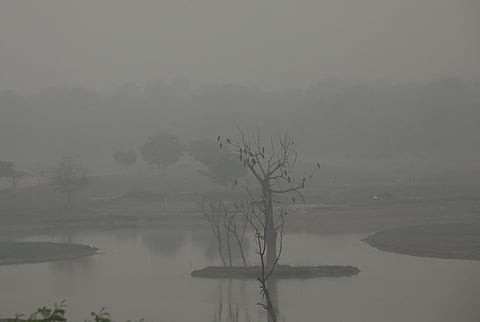




Disclaimer: Copyright infringement not intended.
North American cicadas have life cycles that last for prime numbers of years, putting pressure on the idea that humans created mathematics.
|
About |
Cicadas are hemipteran insects known for their loud, complex, species specific acoustic signals or songs. |
|
Diversity |
India and Bangladesh have the highest generic diversity of cicadas, followed by China. |
|
Survival Strategy |
Cicadas emerge from the ground when predators are dormant to increase their chances of survival. |
|
Habitat |
Mostly canopy dwellers found in natural forests with large trees. |
|
Types of Cicadas |
Divided into two groups: annual and periodical. |
|
Annual Cicadas |
|
|
Periodical Cicadas |
|
|
Ecological Significance |
|
Source:
|
PRACTICE QUESTION Q.The term ‘Cicadas’ was recently in the news. It is related to which among the following? (a) Flower (b) Fungus (c) Insect (d) Fruit Answer: c Explanation: The cicadas are a superfamily, the Cicadoidea, of insects in the order Hemiptera (true bugs). They are in the suborder Auchenorrhyncha, along with smaller jumping bugs such as leafhoppers and froghoppers. The superfamily is divided into two families, the Tettigarctidae, with two species in Australia, and the Cicadidae, with more than 3,000 species described from around the world; many species remain undescribed. Nearly all of cicada species are annual cicadas except for the few North American periodical cicada species, genus Magicicada, which in a given region emerge en masse every 13 or 17 years |







© 2025 iasgyan. All right reserved